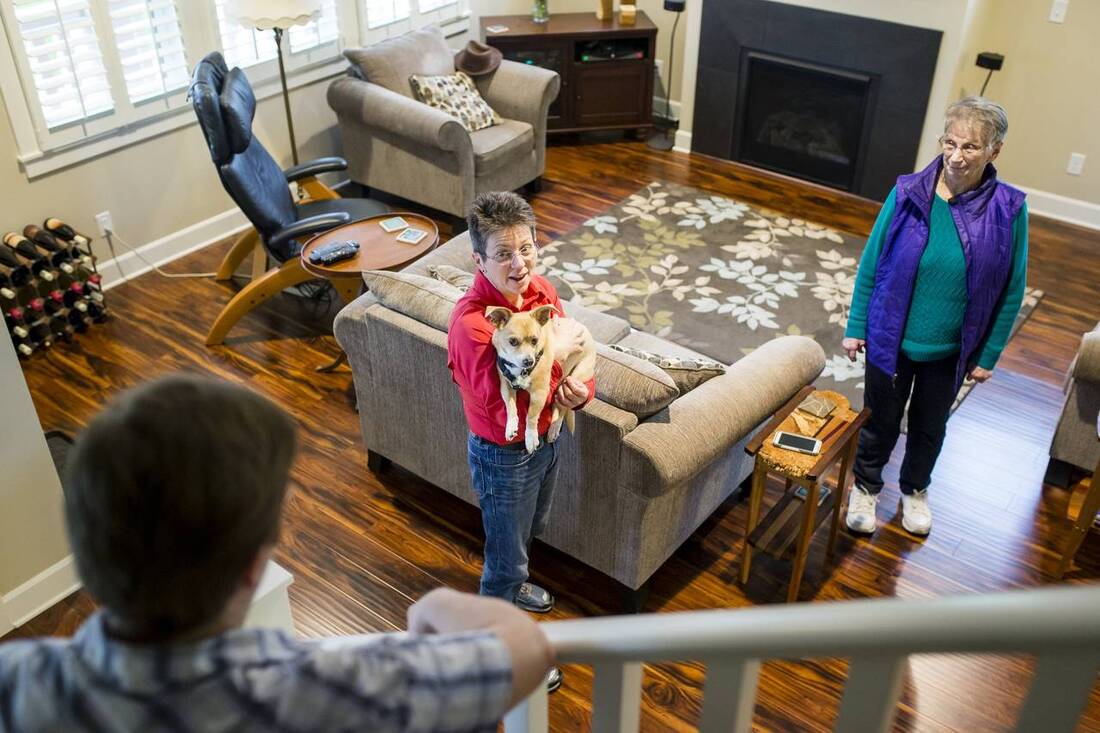|
To put it simply, there is confusion between the building code, planning scheme and some local councils about the risk and impact of the installation of a second kitchen and/or a separate of living quarters. Even though there are examples of single leveled multi-generational homes, (and the numbers are increasing), these are on typically large lots located in the outer suburbs. Unfortunately there is unexplained resistance to multi storied varieties which will increasingly be relevant in an urbanising city not just here in Melbourne but in many other developing cities. It couldn't be summed up any better than the owner of a Washington (USA) building company (Quail Homes). “Quite frankly, the rules are outdated for today’s society.” The wall street article explains just how familiar the issues are here as they are in the North America as they too search for solutions to a growing shift in how we live Hurdles to Multigenerational Living: Kitchens and Visible Second Entrances (A Wall Street Journal Article)So, why does a housing system, which claims to assist in finding affordable and community focused solutions, struggling with the Multi Generational housing concept?
0 Comments
As living cost are forever increasing, we all need to make better use of our resources without compromising our lifestyle. When we design our homes, we often forget how our family structure changes over time and how our homes need to be able to adjust to accommodate various family dynamics, or even for unforeseen events.
Homes should be designed to primarily improve our lives and reduce stress. This is best achieved if they are able to quickly adapt to create living environments that best suit the inhabitants needs regardless of their stage of life. Whether that be by creating accessible living spaces for those with disabilities, providing family independence or improved utilisation of your major asset. All these elements should be considered at the start when looking at the design of a long term family home. Adaptive design principals are at the core of multi-generational homes and through this website I intend to outline the significant benefit this approach will have on both your household and the community at large. What questions you would need to answer before considering living in a multi-generational home?8/22/2020 Would you consider it if:
Living with your parents or in-laws might be enough to send shivers down the spine, however the increasing pressures caused by time scarcity and the cost of living is only likely to get worse. Add the increasing responsibility of taking care of our aging population in a failed aged care system and it is not hard to see there are going to be some real challenges we need to face and design solutions for.
There are solutions, if only we were willing to give them a try and you take the issues into account as you design the solution. [Article originally written in Nov 2018. Now with minor references to COVID]
Did you know that you were once fined by the authorities if you had a water tank in your backyard? If buying a house was not challenging enough, to live affordably is a whole different ball game. Our cities and communities are increasingly under stress partly as a consequence of our own success, but mainly from the acceleration of demographic shifts and population growth. There are more of us with increasing needs that are attempted to be delivered by a decreasing pool of resources. We need to think smarter and differently to meet these challenges. Many of us have difficulties in finding affordable child care spaces, paying for quality aged care services and reducing energy bills. On a broader level, bureaucrats are searching for an equitable approach to delivering disability services while social planners are struggling to halt a mental health epidemic that is increasingly being linked to loneliness. [Now we need to deal with COVID19!] These are not necessarily new problems; however, the issues are now overlapping and multiplying the sense of overwhelm, making it difficult to find a solution to one issue without affecting others. Our urban environment has changed, and as technology and global urbanisation speed up, we cannot remain stationary. Applying existing controls to this changed urban context will stymie our ability to adapt and provide us with substandard options. Do you remember what it was like riding a taxi before Uber came to town? We should be encouraged to work towards a range of useful options that collectively start making inroads in some of the pressures and stresses of urbanisation. Unfortunately, the sensitivity behind housing and the protective nature of regulators is discouraging the necessary innovation which can deliver positive change. Just like other industries that were asleep at the wheel, change in this space is inevitable and will be dramatic as the need for a different approach becomes more urgent. [As COVID has only highlighted to well when it comes to home care for children and our elderly]. Where the need is the greatest, or more viable solutions are technological available, others will enter the landscape and begin to force the change of the rules just as uber did to the taxi market. How long will it take for regulators to understand that the status quo needs to shift? If we needed a drought to force us to sensibly reverse water tank rules, what will it take for regulators to examine new housing approaches? The Royal Commission into aged care? The housing affordability crisis? [The clarity of our urban issues as being made more clearly by COVID19]. I really hope we are better than that. |
Author:
A property expert with over 25 years experience working across both private and public sectors, predominately within the housing space. Archives
October 2020
Categories |




 RSS Feed
RSS Feed
